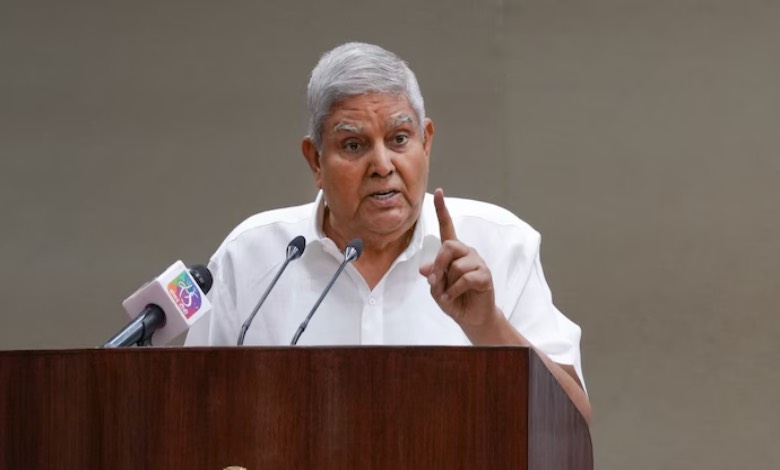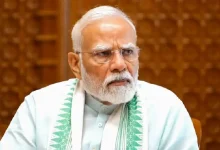You Can’t Order the President”: Vice President Dhankhar Criticizes Supreme Court Overreach
VP Jagdeep Dhankhar warns of judiciary crossing constitutional boundaries after SC directs President to act within a set time on state bills.

Vice President Jagdeep Dhankhar has raised strong objections to a recent Supreme Court ruling instructing the President to take action within a fixed timeframe on state bills forwarded by governors. He described the development as deeply troubling, cautioning that India’s democracy was never designed for judges to act as lawmakers, executive authorities, or a “super Parliament.”
Speaking to Rajya Sabha interns, Dhankhar questioned the implications of such judicial directives. “A court has now issued instructions to the President. Where are we headed as a democracy?” he remarked.
The controversy stems from a Supreme Court judgment issued last week in response to the Tamil Nadu government’s grievance over delays by its Governor in forwarding state bills. Under Article 201 of the Constitution, when a Governor sends a bill to the President for consideration, the court said, a decision must be reached within three months. It further emphasized that the President cannot use a “pocket veto” to indefinitely delay assent and must respond within a reasonable period.
Calling the ruling unprecedented, Dhankhar said, “Is this the democracy we envisioned—where the President must act by a deadline or risk the bill becoming law automatically?”
He accused the judiciary of encroaching on legislative and executive authority, saying, “Are we now accepting a reality where judges make laws, perform executive roles, and function beyond accountability because the law of the land doesn’t apply to them?”
Dhankhar also reminded the gathering of the President’s oath, which is to “preserve, protect and defend the Constitution”—a responsibility that, he noted, places the President on a different constitutional pedestal than others who simply pledge to “abide” by it.
“We must ask: on what basis can the judiciary direct the President of India?” he said, adding that only a Constitution Bench of five or more judges, under Article 145(3), can interpret such matters.
What the Supreme Court Ruled:
The apex court, while hearing Tamil Nadu’s petition against the Governor’s prolonged inaction, underscored that constitutional authorities must act within reasonable time limits—even if none are specifically defined in the law.
“A power without a deadline must still be exercised within a reasonable period,” observed Justices JB Pardiwala and R Mahadevan. The bench further clarified that if the President does not act on a bill within three months, a valid explanation must be given and communicated to the concerned state.
Additionally, the judgment reinforced that assessing the constitutional validity of a bill is the sole domain of constitutional courts, and the executive should not attempt to make such determinations.




